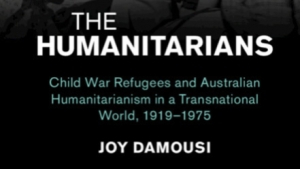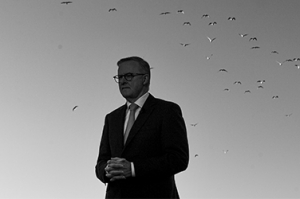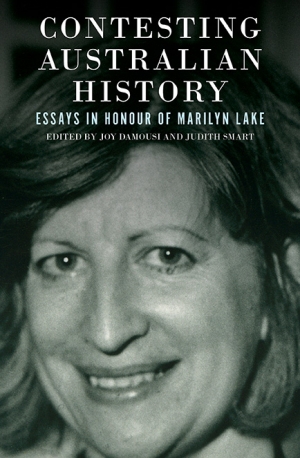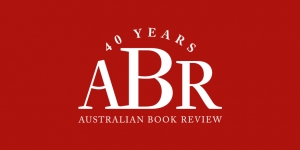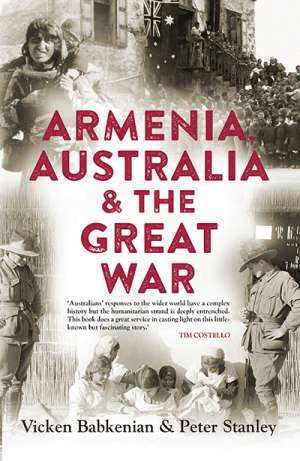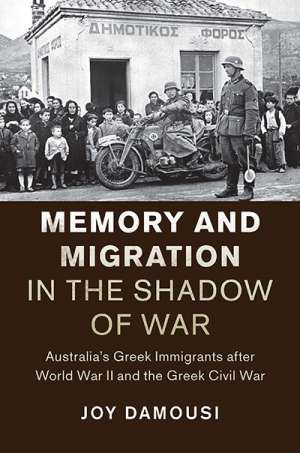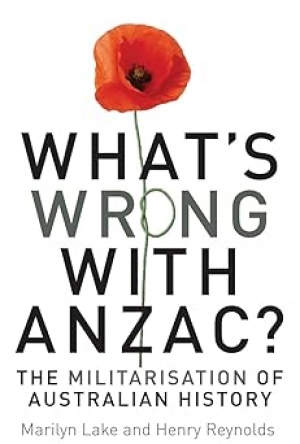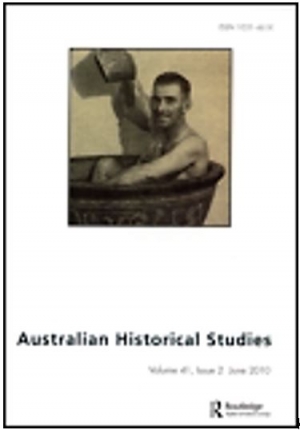Joy Damousi
Andrew Markus reviews 'The Humanitarians: Child war refugees and Australian humanitarianism in a transnational world, 1919–1975' by Joy Damousi
Professor Joy Damousi was the ARC Kathleen Fitzpatrick Laureate Fellow at the University of Melbourne between 2014 and 2019. The ARC Fellowship made possible the scale of the now published book, enabling research not only in Australia but also the United States, Britain, and Europe. The book evidences the potential of richly funded historical research.
... (read more)Quo vadis, Australia? Reorienting the nation following the election
Following the recent federal election, we invited several senior contributors and commentators to nominate one key policy, direction, or reform they hope the Albanese government will pursue.
... (read more)Christina Twomey reviews Contesting Australian History: Essays in honour of Marilyn Lake edited by Joy Damousi and Judith Smart
Marilyn Lake is without doubt one of the most influential historians in and of Australia in the last thirty years. ‘SIGN. US. UP’ writes Clare Corbould, one of the contributors to this festschrift, when describing the reaction of her postgraduate self and friends to seeing Lake sweep through the crowd at a history conference in the late 1990s ...
... (read more)In October, the Australian research and academic community was angered by the revelation that the former Minister for Education and Training, Senator Simon Birmingham, vetoed eleven Australian Research Council (ARC) grants that had been recommended for funding following a rigorous peer-review process ...
... (read more)Joy Damousi reviews 'Armenia, Australia and the Great War' by Vicken Babkenian and Peter Stanley
The Armenian Genocide, which claimed an estimated 1.5 million lives, began in 1915. It continues to cause controversy today and is a hotly contested event; ...
... (read more)Alistair Thomson reviews 'Memory and Migration in the Shadow of War: Australia's Greek immigrants after World War II and the Greek Civil War' by Joy Damousi
When we talk about the importance of Australia's remembered wartime past, we mostly think of home-front experiences or Australians who went away ...
... (read more)Bruce Moore reviews 'Colonial Voices: A Cultural History of English in Australia 1840–1940' by Joy Damousi
This is a book about the role of English speech in the creation and spread of British colonialism in Australia, about the eventual disintegration of this imperial speech and its values in the colony now transformed into a nation, and about the emergence of the ‘colonial voices’ of the title ...
... (read more)Robin Prior reviews 'What’s wrong with Anzac? The militarisation of Australian history' by Marilyn Lake and Henry Reynolds (with Mark McKenna and Joy Damousi)
This is an important book that should be read by as wide a range of historians as possible. Some will find it totally agreeable, others will find it very disagreeable, while others will agree with some parts of the book but not all. It is a book not just about the ‘militarisation of Australian history’, but, perhaps more importantly, about how Australians see themselves in the world.
... (read more)Lyndon Megarrity reviews 'Australian Historical Studies, vol. 37 no.127' edited by Joy Damousi and 'Australian Historical Studies, vol. 37 no.128' edited by Shurlee Swain and Stuart MacIntyre
‘Nothing bad has ever happened in the last 218 years of European settlement – and if anything ever did, it has been inflated out of all proportion by self-serving lefty academics.’ The perpetually angry right-wing commentators that dominate the so-called ‘history wars’ would never write anything so crass, but that is the message which appears to permeate the ‘three cheers’ school of Australian history supported by the present neo-liberal establishment. In contrast, recent contributors to Australian Historical Studies (AHS) provide a more nuanced version of Australian history that transcends pointless debates about the ‘goodies’ and ‘baddies’ of the past. In general, the essayists seek to understand past realities rather than to pass judgment on historical actors and their eras. Race is one of the strongest themes in both issues of AHS. David Walker’s ‘Strange Reading’ (No. 128) is a well-written assessment of Keith Windschuttle’s The White Australia Policy (2004). Walker shows that by ignoring key evidence and through selected use of edited historical quotations, Windschuttle has constructed a bogus Australian past in which racist attitudes towards Asia represented a minimal part of the national story. Gillian Cowlishaw (No. 127) also tackles the history wars and the construction of national myths. Cowlishaw stresses the importance of creating Aboriginal history that reflects the personalities and values of the participants: ‘Indigenous Australians remain shadows in the scholar’s margins, passive recipients of “our” actions in the past and “our” regrets in the present.’ This problem can be hard to rectify, because the public record has a tendency to focus on European attempts to ‘manage’ the indigenous ‘issue’; the perceptions of indigenous people regarding cultural change and continuities are not always sufficiently documented, even in recent times.
... (read more)A thematic offering on sexuality from Australian Historical Studies (AHS) and an assortment of political history from the Australian Journal of Politics & History (AJPH). The first promises a diverse collection of articles that ‘not only speak productively to each other but also provocatively continue the project of putting historically framed sexual questions, and sexually framed historical questions, into scholarly debate’ but actually delivers something more modest. The second lacks this kind of thematic ambition, yet manages to surprise us with the weight of its straightforward historical sensitivity.
... (read more)
